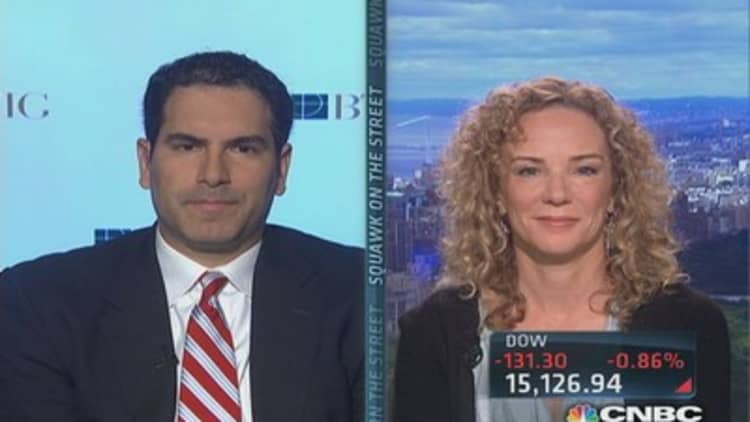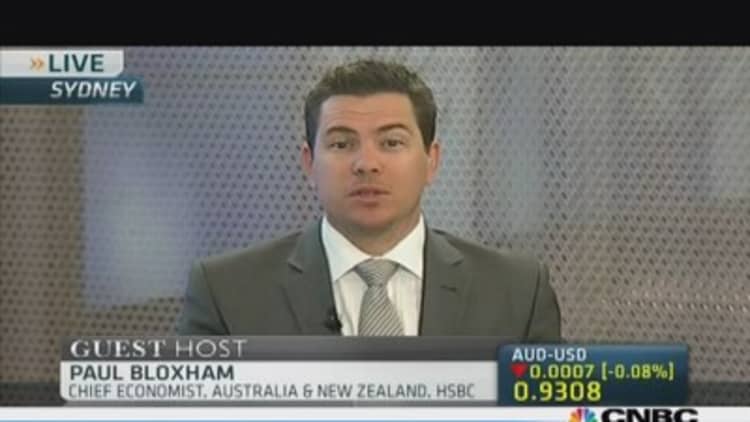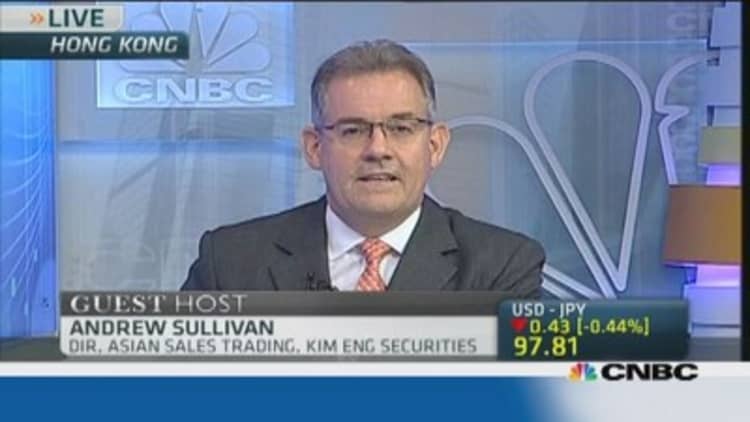As investors prepare for the increasing likelihood of a political stalemate in Washington, many argue a shutdown should be short-lived, but how will markets take the news?
U.S. politicians have been unable to reach an agreement on budget spending thus far. They face a deadline of midnight on Monday, after which the government will shut down, meaning that 800,000 federal employees would be put on temporary leave. Most analysts agree that a shutdown now looks imminent, but acknowledge that this has happened before and is unlikely to last long.

(Read more: Why markets should pray for a government shutdown)
Risk aversion has piqued in response to the potential shutdown. In early Asian trade on Monday, the Nikkei fell 2 percent, while Australia's S&P ASX 200 and the South Korea's lost nearly 1 percent. This followed declines on U.S. stock markets, as both the Dow and the declined over 1 percent last week.
Elsewhere, the U.S. dollar index weakened 0.3 percent against other major currencies from Friday, while yields on the benchmark 10-year U.S. Treasury edged below the 2.6 percent level. Gold rallied to $1,339 per ounce, up 0.25 percent from Friday's close.
Evan Lucas, market strategist at IG, said investors should brace for a violent reaction in global financial markets if a shutdown does occur.
"The blind optimism [that has driven equities] over the last month will evaporate and that makes us nervous about the next four weeks of trading. Trade is going to shift quickly and sporadically," he said.
(Read more: Why a government shutdown could be a pricey proposition)

Lucas added that he expected U.S. stock markets to be most affected.
"The S&P and the Dow have had such a good run and are due for a pullback, especially if we do see confidence in the U.S. economy waning," he said.
"The size of the correction will depend on the length of the shutdown. If it shuts down for one or two days, then the impact will be marginal, while if it is 21 days, then we are looking at a 5, 6 or 7 percent correction," he added.
Other analysts told CNBC that investors should view a government shutdown as a last-minute buying opportunity.
"The government of the U.S. may shut down for a day or two, but it will survive. Buy aggressively... take advantage," said Clifford Bennett, managing director of the White Crane Group.
Bennett advised investors to snap up bargains in oil and resource stocks, along with Australian shares and the Aussie dollar, which he expects to bounce following a resolution to the budget issues.
(Read more: Government shutdown: 9 things you must know)

He added that he expected gold to strengthen considerably on news of the shutdown, then sharply pull back when a resolution is found.
Meanwhile, in terms of currencies, Mitul Kotecha, MD at Crédit Agricole, forecast further weakness in the U.S. dollar in the event of a government shutdown.
"The near term prospects for the currency are bleak, with limited potential for any upside unless a budget deal is reached," he said. "Safe haven currencies in particular the Japanese yen will be buoyed in this environment. The euro will not fully be able to take advantage of U.S. dollar weakness however, given the political tensions within the euro zone," he added.
(Read more: Jobs report maybe delayed by government shutdown)
Steve Goldman, MD of Kapstream Capital, told CNBC Asia's Squawk Box on Monday that political stalemate in Washington, if extended, would likely provide support for U.S. Treasurys.
"A longer stalemate means 10-year Treasury yields could fall well below 2.5 percent, perhaps even testing 2 percent if the situation got bad enough," he added.
— By CNBC'sKatie Holliday: Follow her on Twitter @hollidaykatie


